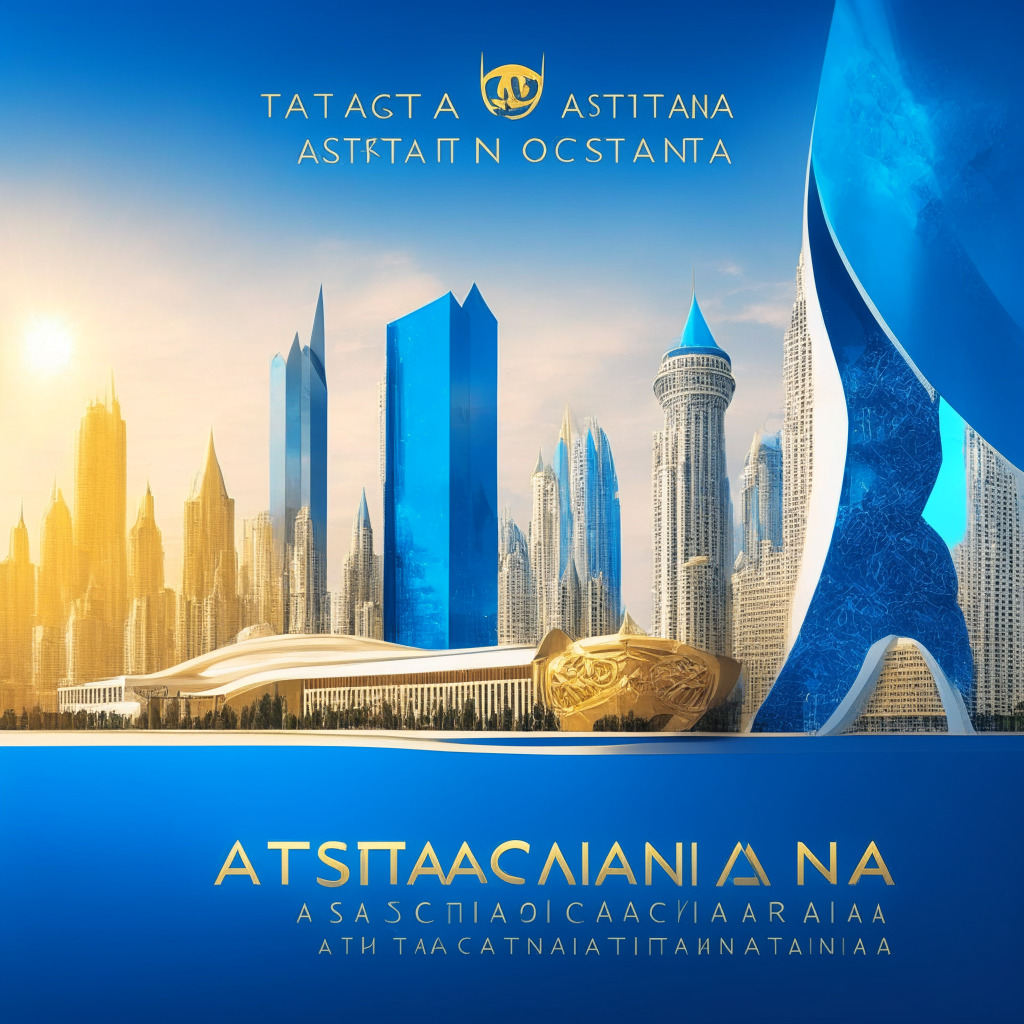Dubai and Abu Dhabi excel in regulatory structure for cryptocurrency innovation, but low crypto adoption persists. The UAE’s proactive approach, diverse population, and strategic location foster blockchain use cases and attract major players, aiming to create a top metaverse economy and virtual jobs by 2030.
Search Results for: Coinbase Europe
Belgium’s Crackdown on Binance: Balancing Security and Innovation in Crypto Regulations
Belgium’s Financial Services and Markets Authority (FSMA) orders Binance to cease exchange and custody wallet services in Belgium amidst SEC lawsuit. The order aims to comply with European Economic Area regulations and may impact growth and adoption of cryptocurrencies due to stringent regulations.
Spain Embraces Crypto.com: Balancing Regulation and Innovation in the EU Crypto Market
Spain registers Crypto.com as a virtual asset service provider under the Bank of Spain, demonstrating its commitment to creating a regulator-friendly environment for cryptocurrency-related ventures, while protecting users and supervising crypto trading activities.
Gary Gensler, SEC, and the Crypto Conundrum: US vs EU Regulations and the Battle Ahead
SEC Chair Gary Gensler faces criticism for his broad approach to cryptocurrencies, causing venture capital investment in the U.S. crypto industry to decline compared to the European Union. The EU’s MiCA legislation acknowledges utility tokens, providing a clear framework for digital assets. New legislation is needed in the U.S. to address the definition of securities and digital asset regulation.
Dutch Bitcoin Equities ETF: Gaining Access to Crypto Stocks within a Regulated Framework
The new Bitcoin Equities ETF by Melanion Capital on Euronext Amsterdam offers Dutch investors a regulated way to gain exposure to the Bitcoin ecosystem through stocks of crypto-related companies. However, the ETF may have potential discrepancies in correlation to Bitcoin’s performance.
Binance Launches Regulated Platform in Kazakhstan Amid Western Regulatory Woes
Binance launches a regulated digital asset platform in Kazakhstan amid regulatory troubles in the West. The platform offers crypto and fiat-focused services and aims to mitigate regulatory risks facing the exchange in the United States and Europe.
Bitcoin Price Surge to $29,000: ETF Applications and Institutional Involvement Impact
Bitcoin surged to $29,000 due to a series of ETF applications in the US and growing institutional involvement in crypto trading. This renewed optimism, led by BlackRock’s ETF application, has increased market confidence in the technology’s potential, despite concerns about increased centralization and scrutiny.
Deutsche Bank’s Crypto Custody Venture: Balancing Innovation and Regulation
Deutsche Bank, Germany’s largest bank, seeks regulatory permission from the German Federal Financial Supervisory Authority (BaFin) to operate a digital asset custodial platform. This move signifies the growing importance of regulations in the cryptocurrency space and the increasing involvement of major financial institutions, providing further validation for the future of blockchain technology and digital assets.
Deutsche Bank Dives into Crypto Custody: Milestone or Centralization Concern?
Deutsche Bank, with $1.3 trillion in assets, has applied for a digital asset custody platform license from Germany’s finance regulator. This move positions the bank to potentially establish a minimum viable product in 2021, signaling a significant step toward embracing digital assets in the traditional financial sector.
Crypto Exodus from the US: Regulatory Hostility Pushing Innovation Overseas
Crypto is leaving the US due to a hostile regulatory landscape, with investors seeking clear frameworks for digital assets. Asia, Middle East, and Europe are emerging as crypto hubs, offering progressive regulations and support for the industry. Without a balanced approach, the US risks losing its innovation capital status.
SEC vs Ripple: Lawsuit Impact on Crypto Market, Regulation, and Global Expansion
The SEC’s lawsuit against Ripple raises crucial questions about the future of crypto regulation and its impact on the broader market. As the landscape evolves, companies must adapt, and Ripple’s engagement in the CBDC and payments space, along with its expanding presence in Europe and Latin America, demonstrate its resilience and long-term growth strategy, regardless of the lawsuit’s outcome.
Crypto Market Reacts to Interest Rates, Fed Testimonies, and Global Economic Events
Crypto market sentiment turns cautious as BlackRock iShares Bitcoin ETF approval, Fed Chair Jerome Powell’s testimony, key central bank announcements, and inflation data releases affect Bitcoin and Ethereum prices. Investors urged to conduct thorough research in these fluctuating market conditions.
EU’s AI Act: Striking Balance Between Regulation and Innovation in Blockchain Future
The European Parliament has voted in favor of the Artificial Intelligence Act, a draft law for regulating AI based on risk categories. The law aims to address concerns such as bias, discrimination, and job displacement while protecting European values of democracy, fundamental rights, and the rule of law.
Crypto Regulation Migration: Boon or Bane for the Industry and Investors?
The recent crackdown on crypto regulations in the US has led to alternative locations like the European Union, the United Kingdom, Switzerland, Hong Kong, and the United Arab Emirates adopting more crypto-friendly regulations. However, a Wall Street Journal article cautioned that lenient regulations might only persist until a major scandal triggers stricter rules, impacting investors and the industry’s long-term viability.
Dubai: The Emerging Epicenter of Crypto Innovation and Regulation
OKX Middle East receives an MVP Preparatory license from Dubai Virtual Assets Regulatory Authority, preparing for its license to become operational. The exchange plans to offer spot, derivatives, and fiat services, and recognizes Dubai’s comprehensive regulation standards as crucial to their regional strategy.
Binance Withdraws from Cyprus: MiCA Compliance and the Future of Crypto Exchanges
Binance, the world’s largest cryptocurrency exchange, is withdrawing from Cyprus ahead of the EU’s Markets in Crypto Assets (MiCA) legislation in 2022. The company plans to focus on regulated entities in countries like France, Italy, and Spain, aligning its business with MiCA to ensure compliance. Tightened regulations and recent legal challenges may prompt a shift in the crypto landscape, emphasizing regulatory compliance.
Binance Faces Accusations: Understanding Fraud Claims, Market Manipulation, and Regulatory Challenges
Binance and its CEO, Changpeng “CZ” Zhao, face accusations of fraud and market manipulation, potentially affecting the reputation of the crypto industry giant. Concerns arise for individual investors who could suffer financial losses due to such market manipulation, highlighting the need for transparent regulations in the crypto space.
Tokens as Securities: The Impact on Blockchain Innovation and Global Jurisdiction Divide
The application of traditional securities laws to crypto tokens sparks debates over their classification and the ability to achieve decentralization and utility in blockchain networks. As the US faces SEC lawsuits against crypto exchanges, other countries take a progressive approach, attracting talent and capital for crypto hubs, highlighting the need for a balanced approach between regulation and innovation.
Economic News Takes Center Stage: Impact on Crypto and Financial Markets
The upcoming week shifts focus from crypto-specific events to economic news, with critical events like the US Consumer Price Index release, Federal Open Market Committee’s June meeting results, and the European Central Bank’s rate hike decision expected to significantly impact both cryptocurrency and traditional markets.
Crypto Industry’s Resilience Against Regulatory Pressure: The Antifragile System Explained
Blockstream CEO Adam Back believes that the crypto industry is resilient enough to withstand regulatory pressures and continue its growth. With alternative solutions and strategies available, the market’s survival is ensured even amid regulatory actions against major exchanges like Binance and Coinbase.
Bitcoin Stability Amid SEC Crackdown: How Altcoins Suffer & Future Market Implications
Amid the SEC’s crackdown on the crypto market, Bitcoin exhibits commendable stability, maintaining support above $25,000 and its market share approaching 50%. However, altcoins experience instability, with SEC allegations implicating tokens like Solana, Polygon, and Algorand.
Luxury NFTs, Apple’s Vision Pro, and the Growing NFT Lending Market: Risks and Rewards
This week in technology, Louis Vuitton enters the NFT market with Via Treasure Trunks, Apple announces Vision Pro mixed reality headset, and NFT lending market sees growth with Binance NFT Loan. However, critics caution against potential pitfalls surrounding NFT lending platforms.
EU’s MiCA vs US Aggressive Stance: Dueling Approaches to Crypto Regulation
The EU’s MiCA legislation aims to create a consistent regulatory framework for crypto assets among member states, addressing registration, authorization, security, and market abuse. Set to take effect by December 30, 2024, the framework’s success will be closely observed for balancing innovation, market integrity, and investor protection.
EU’s MiCA Law: Balancing Crypto Growth, Privacy, and Regulation – Pros and Cons Unveiled
The European Union’s groundbreaking Markets in Crypto Assets law (MiCA) introduces crypto licensing rules, providing wallet providers the ability to operate across the bloc and imposing new governance and financial requirements on stablecoin issuers. This move towards regulation presents both opportunities for mainstream adoption and concerns about stifling innovation within the crypto industry.
Crypto Wealth Shifts Eastward: Examining Regulatory Impacts & Market Volatility
The increasing regulatory actions in the West, especially the US SEC’s lawsuits against Binance and Coinbase, have led to a significant shift in crypto wealth, as the East becomes a haven for those seeking alternatives to stricter regulations. This redistribution of cryptocurrency wealth highlights a divide in perspectives on financial innovation and regulatory oversight, with investors migrating to Eastern markets.
Eastward Shift: Analyzing Bitcoin’s Migration from US to Asia and Its Global Impact
Recent research by Glassnode reveals a significant shift in Bitcoin ownership distribution, with a 10% decrease in supply held by US entities and an increase in Asian market dominance. This migration of Bitcoin occurs amid the evolving geopolitical landscape surrounding cryptocurrencies, as stricter regulations impact the US and Asia gains more influence in the market.
EU vs. US Crypto Regulation: Competitiveness & Innovation at Stake in the Global Market
The European Union’s new Markets in Crypto Assets (MiCA) law provides clearer guidelines for blockchain innovators, potentially giving the EU an edge over the U.S. in nurturing cryptocurrency innovation. As the EU prepares to finalize MiCA’s specifics, U.S. legislators should learn from Europe’s approach to legislate for crypto adoption and balance competitiveness with safety and security.
Crypto Rollercoaster: SEC Crackdown, Security, and the Future of Crypto Investment
The rollercoaster ride of cryptocurrencies, major exchange security lawsuits, and regulatory crackdowns has impacted the crypto community. However, the focus is now on compliance and addressing regulatory issues for a secure and flourishing digital assets environment.
EU’s MiCA Crypto Framework: Roots in French Regulations, Impact on Industry, and Debate on Compliance
The EU’s Markets in Crypto Assets (MiCA) regulatory framework has significant similarities to France’s existing PSAN (Digital Asset Service Provider) regulations, according to Ethereum France President Jerome de Tyche. MiCA aims to standardize crypto regulations across Europe and has received positive reactions from stakeholders and regulators, even being suggested as a model for the US by SEC Commissioner Hester Peirce.
Bitcoin Breakout and Regulatory Clarity: Balancing Innovation, Growth, and Global Competition
Bitcoin’s recent breakout highlights the importance of regulatory clarity for its continued success. Strict US crypto regulations push innovation elsewhere, while countries like the UK, UAE, Brazil, Japan, EU, Australia, and Singapore establish their own cryptocurrency centers. Achieving regulatory clarity can support innovation, industry growth, and mitigate risks, maintaining the US as a global leader in cryptocurrency innovation.
Ethereum Rivals Visa, Tether Hits Highs, and Global Crypto Trends: A Weekly Roundup
This week, Ethereum’s transaction volume rivaled Visa, Tether’s market cap hit a record high, and an Ethereum ICO wallet resurfaced with $15 million. Binance dominated headlines with trading discounts and privacy coin delisting news, while CBDC discussions, crypto regulations, and global partnerships shaped the future of the industry.
Outdated SEC Framework: How Crypto Evolution Demands Comprehensive Legal Guidance
The SEC’s reliance on an outdated 2019 document for crypto regulation leaves market participants in obscurity, highlighting the need for an updated framework reflecting the rapidly evolving crypto landscape. As countries adapt to digital assets, the SEC must address cryptocurrencies’ unique characteristics by providing clear and comprehensive regulations.































